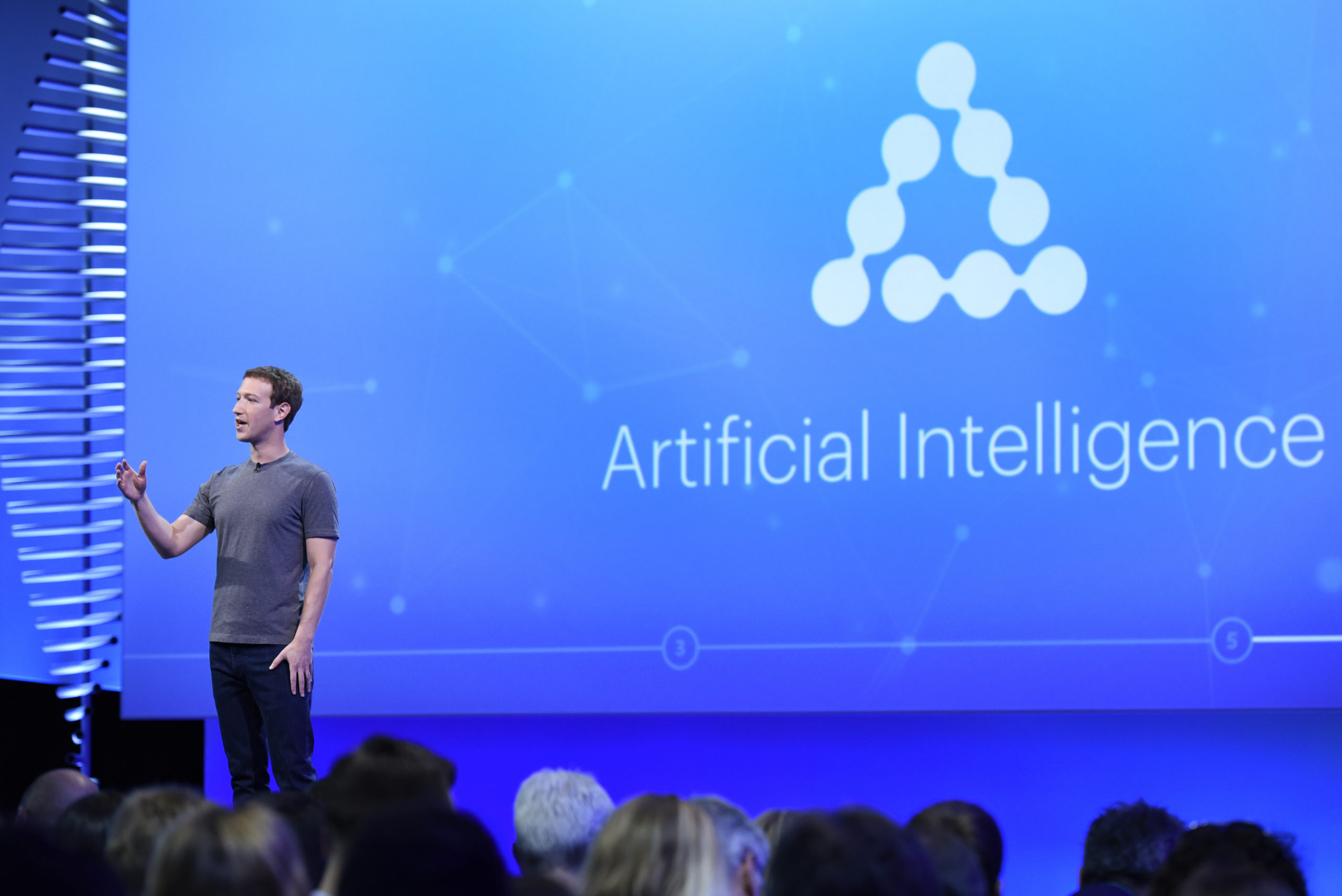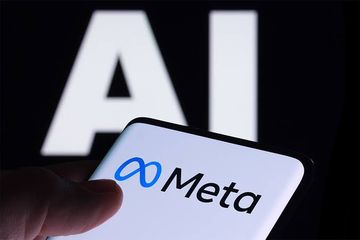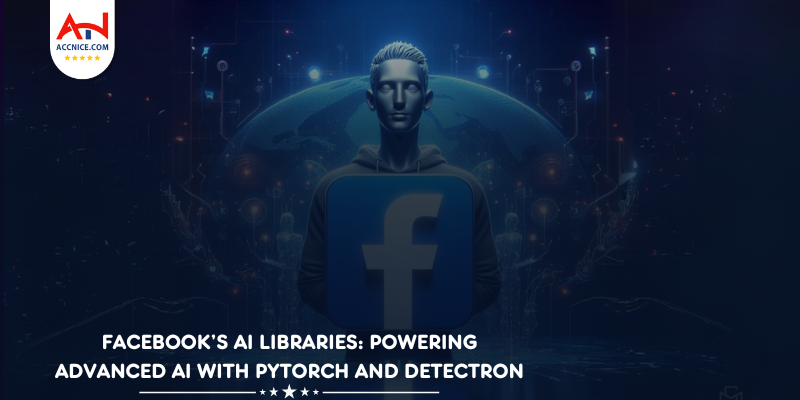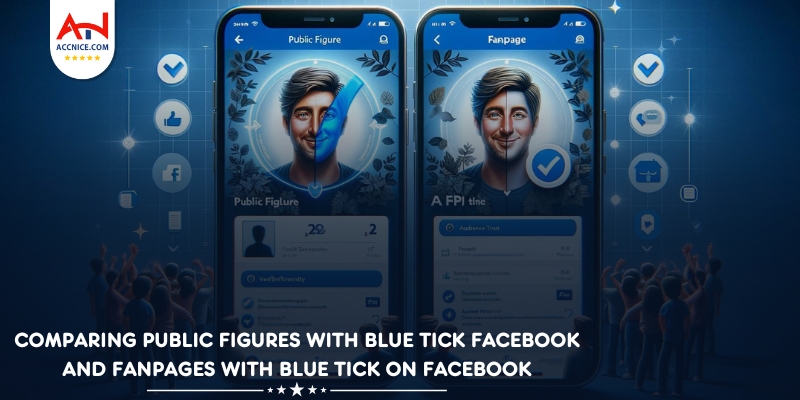Facebook’s AI Libraries: Powering Advanced AI with PyTorch and Detectron2
223 vỉew
Writing date: 2024-05-07 14:56:51

Facebook's contributions to the field of artificial intelligence (AI) and machine learning (ML) are substantial, with the development of powerful libraries such as PyTorch and Detectron2. These tools have become fundamental in advancing AI research and development across various industries. This article delves into how these libraries are used for sophisticated AI and ML applications, transforming the landscape of technology and innovation.
Introduction to Facebook's AI Libraries

1, Overview of Facebook's AI Libraries
Facebook has developed several powerful AI libraries that are widely used in the tech industry for a variety of applications, from natural language processing to image recognition. These libraries are part of Facebook's commitment to open-source software, allowing developers around the world to access cutting-edge technology for free. Here's an introduction to some of the most influential libraries developed by Facebook:
-
PyTorch
- Description: PyTorch is an open-source machine learning library that provides a seamless path from research prototyping to production deployment. It is known for its flexibility, ease of use, and as a strong alternative to TensorFlow.
- Use Cases: It is widely used for applications such as computer vision and natural language processing due to its dynamic computation graphs and efficient memory usage.
-
FAISS (Facebook AI Similarity Search)
- Description: FAISS is a library for efficient similarity search and clustering of dense vectors. It contains algorithms that search in sets of vectors of any size, up to ones that possibly do not fit in RAM.
- Use Cases: It's particularly useful in multimedia retrieval and clustering of large datasets.
-
Detectron
- Description: Detectron is Facebook AI Research's software system that implements state-of-the-art object detection algorithms, including Mask R-CNN. It is written in Python and powered by the Caffe2 deep learning framework.
- Use Cases: Used for tasks such as object detection, segmentation, and person keypoints detection in images.
-
Prophet
- Description: Prophet is a tool designed for making forecasts for time series data that has multiple seasons. It is robust to missing data and shifts in the trend, and handles outliers well.
- Use Cases: It is especially useful for businesses for forecasting seasonal sales, website traffic, and resource allocation.
-
Wit.ai
- Description: Wit.ai makes it easy for developers to build applications and devices that you can talk to or text. It can turn natural language into structured data.
- Use Cases: It is commonly used in creating voice-activated interfaces, understanding user intent, and building chatbots that can engage in human-like conversations.
2, The Impact of Facebook's AI Tools
Facebook's AI libraries have democratized access to powerful AI tools, enabling developers and businesses to innovate and build solutions that were once only possible for large technology firms. These tools have fostered a community of collaborative development and are used in academic research, technology prototypes, and full-scale enterprise deployments.
3, Challenges and Future Prospects
While Facebook's AI tools offer immense potential, they also pose challenges in terms of data privacy, ethical use of AI, and the need for robust, secure implementations. Going forward, Facebook is likely to continue investing in AI, refining its libraries, and expanding their capabilities to include more features that address the needs of a rapidly evolving digital world.
Facebook's contribution to the AI community reflects its commitment to advancing the field of machine learning and supporting the wider adoption of AI across different sectors. These tools not only enhance Facebook's own products and services but also empower innovators and developers around the world to create sophisticated applications that can drive progress in numerous industries.
PyTorch: A Versatile Machine Learning Library

1, Benefits of Using PyTorch
Ease of Use: PyTorch's straightforward and intuitive syntax makes it accessible for beginners and powerful for experienced researchers. It emphasizes simplicity and clarity, which can significantly reduce the learning curve and improve productivity in developing machine learning models.
Flexibility: Thanks to its dynamic computation graph, PyTorch allows modifications to the network architecture on-the-fly during runtime. This is particularly useful in research and development when trying out new ideas.
Strong Community Support: PyTorch has a rapidly growing community that contributes to a rich ecosystem of tools and libraries, making it easier for developers to find resources and support for their projects.
2, Applications of PyTorch
Academic Research: PyTorch is heavily used in academia for cutting-edge research. It enables fast experimentation and prototyping, which are crucial in a research setting where new ideas are constantly tested.
Real-World Applications: From autonomous vehicles to virtual assistants, PyTorch supports a range of applications that require deep learning. Companies use it to build algorithms that can understand speech, recognize images, or make decisions.
Integration with Python Ecosystem: PyTorch works seamlessly with the Python data science stack (including NumPy, SciPy, and Matplotlib), making it a go-to choice for AI researchers who also rely on Python for data analysis and visualization.
3, Developer Resources and Community
Tutorials and Documentation: PyTorch provides extensive documentation and tutorials that cover everything from basic concepts to advanced techniques in deep learning.
Model Hub: PyTorch Hub is a pre-built repository of trained models that can be reused in projects with minimal setup, facilitating more accessible and faster development.
Conferences and Workshops: The PyTorch developer community is supported by conferences like PyTorch Developer Day, workshops, and meetups that help in learning from experts and networking with other developers.
4, Future Prospects
Looking ahead, PyTorch is expected to continue growing both in usage and in its capabilities. Its community-driven approach ensures that it remains innovative and aligned with the latest research. Additionally, ongoing improvements in performance and usability may see PyTorch expanding further into industrial applications, where robustness and scalability are critical.
PyTorch has established itself not only as a powerful tool for AI researchers but also as a practical solution for developers in industry settings. Its continued development is likely to further bridge the gap between research prototyping and production deployment, making advanced machine learning more accessible across various sectors.
Detectron2: Revolutionizing Computer Vision

1, Enhanced Features of Detectron2
Speed and Efficiency: Detectron2 is optimized for both speed and performance, making it suitable for research and production. This optimization allows for faster training times and more efficient model deployment compared to its predecessors.
Customizable Framework: The library's design is highly modular, enabling users to customize or tweak the underlying architecture for specific needs. Researchers can experiment with different configurations to improve the accuracy or speed of their models.
Rich Set of Pre-trained Models: Detectron2 comes with a comprehensive set of pre-trained models which significantly reduces the time and resources required to develop a competitive model from scratch.
2, Applications of Detectron2
Autonomous Vehicles: Detectron2's precise object detection capabilities make it an excellent tool for developing autonomous driving systems, where accurate detection of pedestrians, vehicles, and road signs is crucial.
Medical Image Analysis: In healthcare, Detectron2 can be used for tasks like tumor detection and organ segmentation in medical images, enhancing diagnostic accuracy.
Retail and Surveillance: For retail, Detectron2 can help in automated checkout systems by identifying products. In surveillance, it can be used for monitoring areas for activity recognition and anomaly detection.
3, Community and Development
Open Source Collaboration: As an open-source project, Detectron2 benefits from the collaboration of a vast community of developers who contribute to the continuous improvement of the software.
Extensive Documentation and Resources: Detectron2 provides detailed documentation and tutorials that help new users to quickly get started and experienced users to deeply explore its capabilities.
Active Development: Facebook AI Research actively maintains and updates Detectron2, adding new features and models regularly, which keeps it at the cutting edge of technology.
4, Future Directions
Looking forward, Detectron2 is expected to incorporate more advanced deep learning techniques as they are developed, potentially integrating more AI capabilities like neural architecture search or more efficient training methods to further push the boundaries of what can be achieved with computer vision.
Detectron2 represents a significant step forward in the field of AI and computer vision, providing powerful tools for both academic and commercial applications. Its ongoing development promises to continue to facilitate innovations across various industries, making advanced computer vision more accessible and effective.
Applications of Facebook’s AI Libraries

Facebook's AI libraries, particularly PyTorch and Detectron2, have a profound impact on both academic research and industry applications, driving significant advancements in artificial intelligence.
1, Enhancing AI Research
Academic Collaboration: PyTorch and Detectron2 are pivotal in the academic community, enabling groundbreaking research in diverse fields such as natural language processing (NLP) and computer vision. Their flexibility and extensive library support allow researchers to experiment and innovate more freely, accelerating the development of new AI technologies.
2, Industry Applications
Real-World Deployment: In the industry sphere, these libraries are instrumental in enhancing real-world applications:
-
Augmented Reality: PyTorch and Detectron2 contribute to more immersive and interactive augmented reality experiences by improving object detection and interaction capabilities, which are crucial for overlaying digital information on the real world effectively.
-
Server Infrastructure: These libraries optimize server operations by enabling more efficient data processing and automation features, which are essential for handling large-scale, complex computations more effectively.
The applications of Facebook’s AI libraries are transformative, bridging the gap between theoretical research and practical implementation. By providing tools that simplify complex processes and foster innovation, Facebook is not only advancing the capabilities of AI but is also ensuring its integration into everyday technology enhances user experiences and business operations across various sectors.
Security and Ethical Considerations
Facebook's commitment to secure and ethical AI development is critical in ensuring that advancements in artificial intelligence are both beneficial and responsible. Here's a detailed look at the security and ethical considerations surrounding Facebook's AI libraries, such as PyTorch and Detectron2.
1, Security and Ethical Considerations
- Ensuring Data Privacy: Facebook recognizes the importance of data privacy and security, especially in AI development. The company ensures that its AI libraries are equipped with the latest security patches and are designed to support secure processing and handling of data, adhering to international data protection standards.
- Secure AI Development: Maintaining the integrity and security of AI applications is paramount. Facebook encourages developers to use its AI libraries in a way that prioritizes security, offering guidelines and best practices that help prevent potential vulnerabilities and security breaches.
- AI Ethics and Fairness: One of the core challenges in AI development is ensuring fairness and mitigating bias. Facebook's AI libraries are designed with the capability to identify and reduce biases in machine learning models. This is crucial for preventing discriminatory outcomes and ensuring that AI systems perform fairly across diverse user groups.
2 ,Mitigating Bias:
To combat bias in AI, Facebook invests in research and development of tools that can detect and correct biases in data sets and algorithms. This commitment helps ensure that AI technologies promote equality and fairness, rather than perpetuating existing inequalities.
Conclusion:
The ethical use of AI is a foundational aspect of Facebook's approach to developing its AI libraries. By providing robust, secure, and fair AI tools, Facebook not only fosters innovation but also champions responsible AI practices that will define the future of this technology. The ongoing evolution of AI necessitates a balanced approach that considers both technological advancements and the ethical implications of these developments. As such, Facebook's AI libraries stand as critical resources in shaping a future where AI is used responsibly and effectively across various sectors.
For more insights and updates on effective social media strategies, make sure to follow Accnice and our tutorial blog, where we share the latest and most effective content marketing tips.














